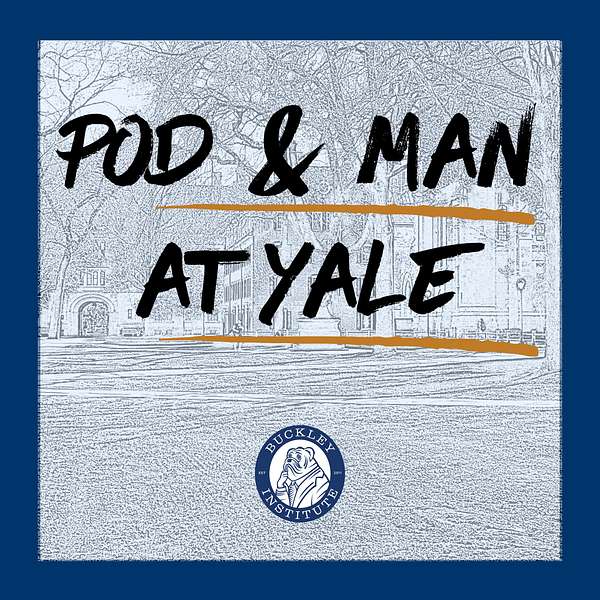
Pod and Man at Yale
Pod and Man at Yale is the official podcast of the Buckley Institute, the only organization dedicated to promoting intellectual diversity and free speech at Yale. Pod and Man at Yale skips the pundits and highlights student voices on the issues facing campus and the country.
Pod and Man at Yale
Students Talk “Why Go To College?”; Dr. Ben Storey Explains How to Live the Good Life
This episode features a special panel of Lux et Veritas Leadership Fellows discussing why go to college in the first place and why colleges and universities, Yale included, should focus more on living a good life than just being busy. Plus, what it’s like to be conservative at the Yale Women’s Center:
Claire Barragan-Bates '25: “I took a class this last semester… It was a class about feminism where we talked about anything but women.”
Emma Ventresca '26: “There are some really wonderful classes at Yale with professors who care more about the academic content, rather than maybe current events or certain ideologies… Seeking out these pockets through friends that you trust and through professors and their mentorship is a really great opportunity that Yale has presented.”
Sabrina Guo '27: “There’s not much promotion of the understanding that a good life is unique to each individual student.”
Isaac Oberman '26: “There’s definitely an immortalization of the ‘Grindset,’ and the idea that, if I’m not doing something, I’m not doing anything.”
Claire Barragan-Bates '25: “I used to direct the Yale Women’s Center, which is one of the wokest places on campus. I definitely feel like I got cancelled quite a few times for specific things that I believed while working there.”
American Enterprise Institute Senior Fellow Ben Storey, an expert on living the good life, walks through what it means to live a good life and how to can find your own path:
Dr. Ben Storey: “It’s not emphasized enough… There are very few people over the course of human history that have the kind of possibilities and options that a modern American college student has.”
Storey: “For people who want to begin that conversation, the author I always turn to first is Plato. And I turn to Plato because … he asks these questions with a kind of immediacy it’s hard to encounter in later authors.”
Storey: “One of the things, I think, we saw in the aftermath of October 7th is that a simplistic oppressor/oppressed dichotomy, through means of which people interpret almost every phenomenon in the political world, has become adopted by a very large number of people on campus. And, in my view, it leads them to profoundly misjudge what’s happening in Israel at present and many other phenomena about modern political contests.
Subscribe to get all Buckley Institute updates at buckleyinstitute.com.
Follow us on Twitter @BuckleyInst